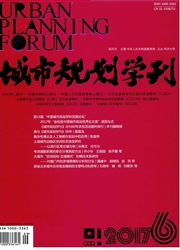

 中文摘要:
中文摘要:
我国长期奉行的“限制大城市规模,积极发展中小城市”的城市发展方针与城市实际增长进程相背离。随着城镇化的推进,作为促进大城市快速发展的农村人口流动格局正发生变化,农村劳动力流动逐渐由单向流动向城乡双向流动转变。回流劳动力具有一定的人力资本积累的特点,影响到了劳动力回流后的行业与空间分布,为小城镇的发展带来了新的机会。通过运用2011年广东省云浮市农户调查数据,分析农村回流劳动力规模、人力资本特征及回流的驱动因素,并从人口动力、服务业动力和社会保障需求等方面,探讨农村劳动力回流对以县城为中心的小城镇发展的影响,最后提出了相关的对策建议。
 英文摘要:
英文摘要:
The urban development principle of "restricting big cities and encouraging medium and small cities" that had been implemented in China for long has run counter to actual urban growth logics. However, in the past several years, context of urbanization has changed in the country. This is reflected in the movement pattern of migrants. Uni-directional migration has given to mutual flows between the urban and rural areas and this has profound influence on eco- nomic development in rural China. Returning migrants usually have accumulated substantial human capital during out-migration period, which can affect spatial distribution of jobs back home. In addition, returning migrants provide an excellent opportunity for small town development. This study, using recent data of a peas- ant-household-survey in Yunfu city, Guangdong Province, analyzes the size, human capital features and reasons of return of returning migrants, and explores the effect of returning migrants on small town development from three aspects: population growth, service industry and welfare provision. At last, we put forward cor- responding suggestions.
 同期刊论文项目
同期刊论文项目
 同项目期刊论文
同项目期刊论文
 期刊信息
期刊信息
